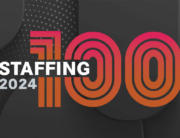Last month, the US hit the significant milestone of our president’s first 100 days in office. The first few months of the new administration have been marked by significant changes, and we can expect more to come. Employers and staffing professionals alike need to figure out how to navigate the changes associated with this government.
Jim Lanzalotto, senior vice president of Monster’s staffing and healthcare business, has nearly 20 years of experience navigating the evolving staffing landscape through administrations that have come and gone, and can help employers and job seekers do the same.
Q: What do you see as the biggest challenges that staffing professionals face as the new administration makes policy changes?
A: Any time there is change, there’s uniqueness in the marketplace. In recruiting and staffing, that especially holds true.
If you take, for example, the potential impact on H-1B, H-2A and H-2B non-immigrant workers, it could be pretty dramatic. [Editor’s note: H-1B visas are for foreign specialty workers, often in technology. H-2A visas are for temporary agricultural employees, and H-2B visas are for temporary non-agricultural workers.] If you look at industrial markets, farming and technology, those will be impactful issues with a wide range of implications, depending on what lawmakers decide.
Regardless of the political and social impact, foreign workers do add to the supply of resources in the workforce. Once the supply of candidates changes, dramatic things happen in the marketplace. For example, if you are hiring Java developers and there are fewer H-1B visa holders in the Java development market and demand does not change, the cost of talent will rise. It’s fundamental supply side economics.
The reason foreign workers are needed in many cases is a lack of adequate supply of talent in the US. Hi-tech specialized work is being done here, but there is not an adequate supply of certain high-skilled technology workers and engineers in America.
Q: When it comes to the job market and staffing industry, what are some areas of opportunity associated with the viewpoints and policies of the new administration?
A: There are two areas in particular: technology and government staffing. In both places, the need for the work has not changed.
The issue in the case of the federal government is one of headcount. Projects still need to be completed. You can accomplish that by providing an outsourced service as opposed to a pure staffing model.
In the case of technology workers, the outsourced work model still applies. To offset potential challenges in the market, you need to look at other business models.
Q: How do you recommend professionals navigate and prioritize among these changes?
A: For recruiters, it is going to be a more challenging recruitment cycle with a smaller worker pool. That always makes it more difficult to recruit. On the talent side, it creates a significant amount of upside. If you’re good and you execute well, people will not want you to leave their projects or organizations. The talent will have a lot more — and potentially higherpaying — options.
Q: Do you anticipate changes to the kinds of offer packages employers will be able to provide and staffing professionals will be able to negotiate for job seekers?
A: A limited supply of candidates absolutely has a direct relationship with costs. So, if there are not enough Java developers or farm workers, you either have to increase the supply, which is going to be a significant challenge, or you have to pay more than the next hiring manager in order to get the talent. There will be changes to salaries.
Q: What industries do you expect to be affected most significantly by the new administration?
A: Agriculture, professional services and any industry that utilizes technology workers will be negatively affected due to the potential of a decreased candidate supply. I think staffing companies could benefit if they change their service mix, and companies that are already in the professional services markets could be successful.
Q: What can staffing leaders in particular do to help their employees navigate these changes with both candidates and client companies?
A: The most important thing they can do is help recruiters and their customers understand the impact before it happens. Everybody always talks about how you deal with change, but preparing for change is what’s most important. If you are heavily invested in certain markets that are going to be heavily affected, you need to have a navigation plan. Then you have to make some fundamental business decisions: If it’s a long-term impact, what market should you be in? In staffing, you can pivot and go into other markets. It’s not easy, and it takes time, but you can do it.
Q: How do you recommend employers strategically address statements and changes initiated from the new government? How can they judge which will have the most effect, if any, on their business?
A: Leaders shouldn’t react based on first blush. Do research, be well-networked in your marketplaces and with your local and national elected officials, understand market needs, and then make decisions. You have to be patient enough to let the issues play out, and once decisions are made, be ready to move. When it comes to changing policies or a shift in direction, hope is not a method: It’s about planning and thinking.
Q: If you were speaking to a political body making decisions that will affect the staffing industry, what would be the top thing you’d want them to know?
A: The greatest challenge staffing companies have is finding enough qualified talent that meets their customers’ needs. And it’s important to have that free flow of talent available at all times. That’s the key for all staffing companies regardless of the markets they serve.
Q: How might the new administration affect job seekers’ prospects?
A: Like anything else, a new administration brings new opportunities. You will be exposed to shifts and changes in government spending and initiatives, and you will see opportunities that may not have been previously visible. For example, initial budgets indicate there will be an increase in military spending. That creates an opportunity. There is a significant analysis being done right now to make the government more efficient. What opportunities exist there? z






